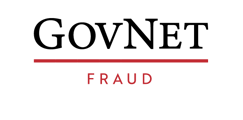As we navigate through 2025, counter fraud professionals across the public sector are grappling with evolving threats that reflect our changing work patterns and technological landscape. We asked three senior practitioners: "What are the types of fraud risks that have become most prominent in 2025. And how have they evolved from recent years"
 Prefer to listen? Click here for the audio version.
Prefer to listen? Click here for the audio version. 
Social Housing Fraud: The Persistent Challenge
Shelley Osborne, Fraud Prevention Officer, Counter Fraud Shared Service, London Borough of Lambeth
For local authorities, social housing fraud remains the highest-impact risk. Recent data from the Tenancy Fraud Forum indicates that of London's 800,000 social homes, an estimated 50,000 are subject to some form of tenancy fraud. What's particularly concerning is how fraudsters are leveraging modern platforms to monetise their illegal activities.
The rise of short-term holiday rental platforms has created new opportunities for tenants to illegally sublet social housing properties for additional income. Adding to this complexity, new fintech schemes are emerging that offer tax-free payments of £3,000-£15,000 to individuals renting out spare rooms, potentially complicating oversight of social housing misuse.
Procurement Fraud: Resource Pressures Create Opportunities
Local authority procurement fraud also continues to pose significant risks, particularly around suppliers invoicing for undelivered services. The combination of increasing workloads and reduced resources in some council areas has created oversight gaps that fraudsters are quick to exploit. This highlights the critical importance of robust contract management and the value of implementing anti-fraud controls throughout the procurement process.
The timing is particularly relevant as organisations work to align with the failure to prevent fraud provisions, conducting gap analyses across the six key principles to strengthen their defences.
Government Sector: Hybrid Working's Unintended Consequences
Alan Gibbons, Senior Counter Fraud Manager, Counter Fraud and Investigation, Government Internal Audit AgencyGovernment organisations are seeing persistent fraud patterns in two main areas: financial fraud and data-related abuse. The shift to hybrid and remote working has created new vulnerabilities that fraudsters are exploiting systematically.
Time and leave abuse has increased, with a notable rise in falsified medical certificates and special leave applications. The reduced physical oversight inherent in remote working arrangements, combined with increased reliance on digital documentation that may be easier to falsify, has made these frauds harder to detect.
Similarly, overtime abuse, travel and subsistence claims, and expense fraud have all increased both in frequency and financial impact. Conflict of interest issues and inappropriate gifts and hospitality continue to present challenges, while dual employment cases have become easier to perpetrate in hybrid working environments.
DWP: Sophisticated Evolution of Established Threats
Kelly Murphy, Head of Performance, Planning and Workflow, Department for Work & Pensions
While the fundamental fraud risks facing the Department for Work and Pensions haven't dramatically shifted, the methods have become increasingly sophisticated. Fraudsters are sharing intelligence about successful approaches and continuously testing controls.
The most significant evolution has been the shift toward data-driven fraud approaches, requiring counter fraud teams to enhance their analytical capabilities to match this increased sophistication.
Thanks to our Panel of speakers:
Alan Gibbons, Senior Counter Fraud Manager, Counter Fraud and Investigation, Government Internal Audit Agency
Shelley Osborne, Fraud Prevention Officer, Counter Fraud Shared Service, London Borough of Lambeth
Kelly Murphy, Head of Performance, Planning and Workflow, DWP
CHAIR: Rachael Tiffen, Director, Public Sector, CIFAS
Jessica Kimbell, GovNet


